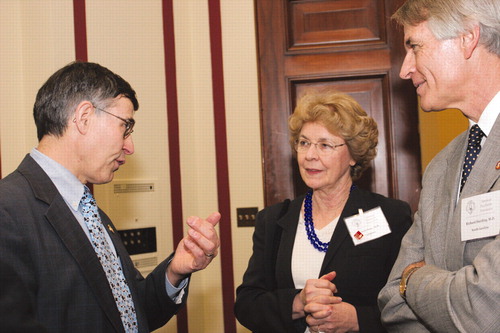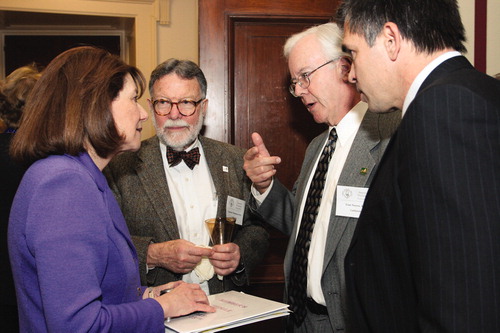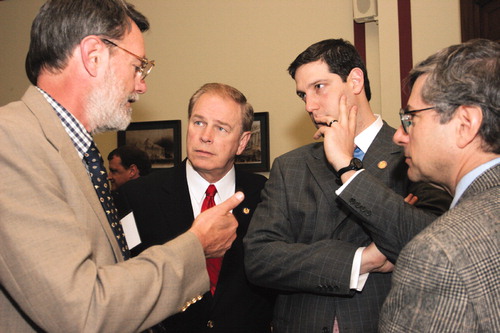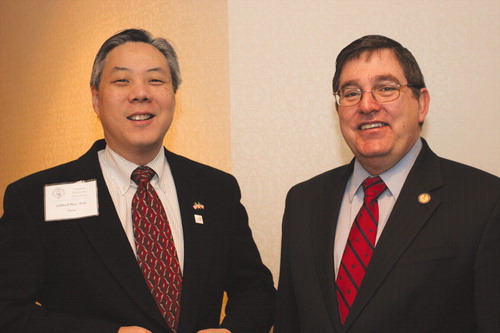Advocating for Patients and the Profession
Ninety-one APA members were on Capitol Hill in March to visit members of Congress or their aides during APA's 2005 Advocacy Day.
The congressional visits culminated two days of briefings on mental health issues by congressional staff and mental health advocates and training sessions for APA members on communicating effectively on Capitol Hill (see facing page).
The APA members attending the three-day program represented 45 states and the District of Columbia. Many of them were new participants and excited about meeting their senators and representatives.
“These appointments also play an important role in our grass-roots advocacy because members of Congress pay attention to what constituents say,” noted Nicholas Meyers, director of the APA Department of Government Relations.
APA members attending a reception after their visits also heard from several influential members of Congress, including Sen. Gordon Smith (R-Ore.), who chairs the Senate Special Committee on Aging and is a member of the Senate Committee on Finance. Smith gave the keynote address at the APAPAC reception and received its Distinguished Leadership Award. Smith was the principal sponsor of the Garrett Lee Smith Memorial Act, which APA supported and President Bush signed into law last year. The goal of the law is to reduce suicide among youth.









